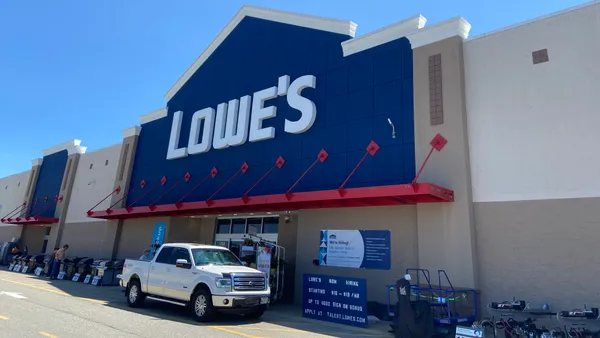Dive Brief:
-
Private equity firm Blackstone Group is walking away from a planned sale of its A$3.5 billion ($2.8 billion) mall holdings, mostly in Sydney and Melbourne, Australia, an unnamed source who was not authorized to speak publicly told Reuters.
-
The dearth of interest in the 10-mall portfolio was attributed to fears of Amazon, which is poised to arrive Down Under some time next month, according to the report.
-
There was some interest in individual properties, but not for the entire package, according to Reuters’ source. Blackstone (which declined to comment to Reuters) will renovate the properties instead, according to the report.
Dive Insight:
Blackstone’s predicament isn’t all because of Amazon’s imminent arrival in the country — Australia is also in the midst of a real estate correction that some observers have said has been a long time coming. But its shopping center portfolio, centered squarely on retail, makes it a double-whammy.
Amazon’s entry will reportedly be a limited one, at least at first. The e-commerce giant is constructing a 258,300 square foot warehouse outside of Melbourne to stock products that will soon be available for delivery to customers across the country, HuffPost reports. And while Amazon is bringing its marketplace to the country, it has not yet disclosed whether its sticky Prime ecosystem will become available, according to Reuters.
One company unruffled, at least publicly, by Amazon’s Australia plans is eBay. Tim MacKinnon, eBay Australia’s chief marketing officer, told the Australian this week that Amazon isn’t likely prepared to meet expectations in a country that is slowly taking to e-commerce but where consumers remain frustrated with shipping speeds, according to that report.
EBay, which has been in Australia for nearly two decades, has beefed up its marketplace and its site to meet the on-coming challenge, MacKinnon told the paper. While eBay has reason to show a strong front as retailers panic in Australia, some analysts also say that Amazon shouldn't necessarily be feared. Moody’s Investors Service last week released a report questioning the size and strength of the company’s Prime membership, for example. Amazon has also struggled to squeeze a profit out of its retail side, relying on its cloud services for support, Nick Egelanian, president of retail development consultants SiteWorks International, told Retail Dive in an email earlier this year.
Plus, e-commerce's share grab of the retail business, still at below 10% in the U.S., isn't inevitably on a growth curve, he said. “When shipping costs are fully allocated to the consumer some time in the future, we will see the rate of internet sales growth sharply decline,” he said.













